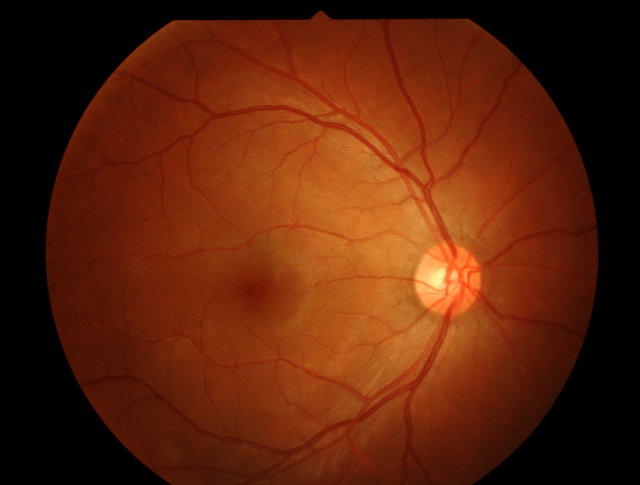 Google DeepMind has announced a new research project to spot the early signs of sight-threatening eye diseases. The DeepMind division, the company’s London-based artificial intelligence team, is partnering with Moorfields Eye Hospital to use machine-learning to analyze one million anonymized digital eye scans in an effort to improve the efficiency and accuracy eye disease diagnosis, thereby leading to earlier detection and intervention. The venture is DeepMind’s second collaboration with the UK’s National Health Service (NHS), but the first to use artificial intelligence.
Google DeepMind has announced a new research project to spot the early signs of sight-threatening eye diseases. The DeepMind division, the company’s London-based artificial intelligence team, is partnering with Moorfields Eye Hospital to use machine-learning to analyze one million anonymized digital eye scans in an effort to improve the efficiency and accuracy eye disease diagnosis, thereby leading to earlier detection and intervention. The venture is DeepMind’s second collaboration with the UK’s National Health Service (NHS), but the first to use artificial intelligence.
The project began when Pearse Keane, a consultant ophthalmologist at Moorfields, contacted DeepMind to explore how algorithms could assist doctors in recognizing two specific conditions that cause sight loss: age-related macular degeneration (AMD) and diabetic retinopathy. Together, these diseases affect more than 100 million people worldwide.
AMD is a common eye condition and a leading cause of vision loss among people age 50 and older. It causes damage to the macula, a small spot near the center of the retina and the part of the eye needed for sharp, central vision, which lets us see objects that are straight ahead. Diabetic retinopathy, caused by damage to the blood vessels of the light sensitive tissue in the retina, is the fastest growing cause of blindness around the world.
“There’s so much at stake, particularly with diabetic retinopathy,” DeepMind co-founder Mustafa Suleyman said. “If you have diabetes you’re 25 times more likely to go blind. If we can detect this, and get in there as early as possible, then 98% of the most severe visual loss might be prevented.”
Moorfields Eye Hospital is one of the oldest and largest health centers for ophthalmic treatment, teaching, and research in Europe. Handling more than 600,000 patient visits each year, staff conduct thousands of optical coherence tomography (OCT) scans each week to diagnose and determine the correct treatment for these serious eye conditions. If DeepMind’s research is successful, the algorithm can aid healthcare professionals in expediting the complex and time consuming effort of analyzing the digital scans and, as a result, ensure that many people retain their sight.
After facing criticism for the 1.6 million patient records released to DeepMind during the last collaborative effort with UK’s National Health Service (NHS), DeepMind was quick to stress in a blog post that is it not possible to identify any individual patients from the scans, and that the company is “bound by clear rules covering what we can do with [the data], which are distinct to (though equally strict as) the rules that govern our direct patient care work with the Royal Free Hospital.” The data received is completely anonymous.
The goal is for machine-learning systems to eventually be able to recognize sight-threatening conditions from just a digital eye scan. Professor Peng Tee Khaw, the head of Moorfields’ ophthalmology research center, said that the key to the collaboration would be increased efficiency. “It takes me my whole life experience to follow one patient’s history. And yet patients rely on my experience to predict their future. If we could use machine assisted deep learning, we could be so much better at doing this, because then I could have the experience of 10,000 lifetimes.”
Advertisement
Learn more about Electronic Products Digital





